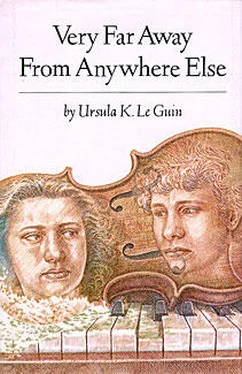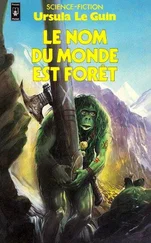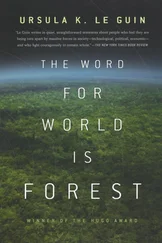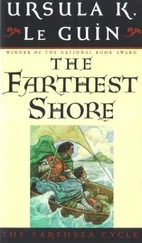Ursula Le Guin - Very Far Away from Anywhere Else
Здесь есть возможность читать онлайн «Ursula Le Guin - Very Far Away from Anywhere Else» весь текст электронной книги совершенно бесплатно (целиком полную версию без сокращений). В некоторых случаях можно слушать аудио, скачать через торрент в формате fb2 и присутствует краткое содержание. Жанр: Современная проза, на английском языке. Описание произведения, (предисловие) а так же отзывы посетителей доступны на портале библиотеки ЛибКат.
- Название:Very Far Away from Anywhere Else
- Автор:
- Жанр:
- Год:неизвестен
- ISBN:нет данных
- Рейтинг книги:5 / 5. Голосов: 1
-
Избранное:Добавить в избранное
- Отзывы:
-
Ваша оценка:
- 100
- 1
- 2
- 3
- 4
- 5
Very Far Away from Anywhere Else: краткое содержание, описание и аннотация
Предлагаем к чтению аннотацию, описание, краткое содержание или предисловие (зависит от того, что написал сам автор книги «Very Far Away from Anywhere Else»). Если вы не нашли необходимую информацию о книге — напишите в комментариях, мы постараемся отыскать её.
Very Far Away from Anywhere Else — читать онлайн бесплатно полную книгу (весь текст) целиком
Ниже представлен текст книги, разбитый по страницам. Система сохранения места последней прочитанной страницы, позволяет с удобством читать онлайн бесплатно книгу «Very Far Away from Anywhere Else», без необходимости каждый раз заново искать на чём Вы остановились. Поставьте закладку, и сможете в любой момент перейти на страницу, на которой закончили чтение.
Интервал:
Закладка:
I looked at things, the trees, the houses, the way a tourist would, and it really seemed to be true, I’d never seen them before. The wind kept blowing in my face.
When I got to the church and other people were going in, I felt very nervous and irritable. I sort of crept in. I would have gone on all fours if I could have, so as to be less visible. It was a big old church, mostly wood, hollow and dark and high inside. Since I’d never been in it, it was easy to keep up the feeling of being a total stranger, a foreigner. There were quite a lot of people there and more coming in, but I didn’t know any of them. I didn’t know where Natalie would sit, probably down in front, so I took a seat at the end of a pew in the last row, clear across the church from where the people came in, behind a pillar, as inconspicuous a place as I could find. I didn’t want to see or be seen. I wanted to be alone. The only people I saw that I knew even by sight were two girls from school, maybe friends of Natalie’s.
The church got quite full, but being in a church nobody talked loud, and the sound of them talking was like water on the beach, a big soft noise, not English, not anything. I sat there reading the mimeographed program and feeling dizzy and unearthly—detached, completely detached.
The songs were the next to last thing on the program. The orchestra was pretty good, I guess; I didn’t listen hard, I kept floating; but I sort of vaguely enjoyed the music, because it let me float. There was an intermission, but I stayed in my seat. Then finally the singer stood up, down in front. The accompaniment was a string quartet, and Natalie was playing the viola part. I hadn’t expected that. I saw her sitting there next to a big middle-aged man cellist; he hid most of her, I could just see her hair looking sleek and jet black in the lights. Then I ducked down again. The conductor, who was the chatty type, went on for a while about Music in Our City and about this promising young musician and composer of eighteen, and finally shut up and the music began.
The singer was good. She was just somebody who sang at the church, I guess, but she had a strong voice, and she understood the words and the music. The first song was “Love and Friendship,” a simple poem about how love is like the wild rose but friendship is the holly tree. It had a good tune, and you could tell the audience thought it was very pretty. They applauded hard at the end. Natalie sat there and scowled and didn’t look up. They weren’t supposed to applaud until all three songs were sung. The singer looked embarrassed and half bowed, and the audience finally got the idea and shut up. Then she sang the second one. Emily Bronte wrote the words when she was twenty-two.
Riches I hold in light esteem
And Love I laugh to scorn
And lust of Fame was but a dream
That vanished with the morn—
And if I pray, the only prayer
That moves my lips for me
Is—“Leave the heart that now I bear
And give me liberty.”
Yes, as my swift days near their goal
’Tis all that I implore—
Through life and death, a chainless soul
With courage to endure!
The violins and the cello played long notes softly in a kind of shivering drone, and there was a double tune, the singer and the viola, singing with and against each other. A hard, reaching, grieving tune. And it broke through, on those last four words, and stopped.
The audience didn’t applaud. Maybe they didn’t know it was over, maybe they didn’t like it, maybe it scared them. The whole place was perfectly silent. Then they did the third song, “Mild the mist upon the hill,” very softly. I began crying, and I couldn’t stop when it was over and they were clapping and Natalie had to stand up and take bows. I got up and blundered around the back of the pews, by feel mostly because I couldn’t see for crying, and got out of the church into the night.
I started to walk up towards the park. The street lamps were big blobs of light with rainbow haloes, and the wind was cold on the tears on my face. My head was hot and light and ringing with the singer’s voice. I didn’t feel the pavement under my feet, and if I passed anyone I didn’t see them. And I didn’t care if they saw me walking on the street crying.
There was a glory in it. It was too much for me to take, everything coming together at once, but there was a glory in it. And that was partly love. I mean real love. In the song I had seen Natalie whole, the way she really was, and I loved her. It was not an emotion or a desire, it was a confirmation, it was a glory, like seeing the stars. To know that she could do that, that she could make a song that made people be still and listen, and made me cry, to know that that was Natalie, it really was, it was her, herself, the truth.
But there was so much pain in it, and I couldn’t handle it.
After a couple of blocks my tears dried up. I walked on, but by the time I got to the edge of the park I was so tired I turned around and headed for home. It was about fifteen blocks, and as I walked I wasn’t thinking or feeling anything that I can remember. I just walked in the night, and I could have been doing it forever and gone on doing it forever. Only the sense of strangeness was gone. Everything was familiar, the whole world, the stars even, I was at home. Now and then there was the smell of fresh earth or flowers from a dark garden. I remember that.
I came to our street and turned down it. Just as I came towards the Fields’ house, their car pulled up in front of it, and Mr. and Mrs. Field and Natalie and another young woman got out. They were all talking. I stopped short and just stood. I was between streetlights, and it’s very strange that Natalie could see me off there in the dark. But she came straight towards me. I stood there.
“Owen?”
I said, “Yeah, hi.”
“I saw you at the concert.”
“Yeah. I heard you,” I said, and gave a sort of laugh.
She was carrying her viola case. She had on a long dress, her hair still looked very black and smooth, and her face was bright. Playing her music, and then I suppose a reception afterwards with people congratulating her, had got her keyed-up, tense; her eyes looked big.
“You left after my songs.”
“Yeah. Is that when you saw me?”
“I saw you earlier. At the back. I was looking for you.”
“You thought I’d be there?”
“I hoped you would. No. I thought you would.”
Her father called her from the front steps: “Natalie!”
“Is he proud of you?” I asked.
She nodded.
“I have to go in,” she said. “My sister came for the concert. Do you want to come in?”
“I can’t.”
I meant I couldn’t, not that anybody was preventing me.
“Will you come tomorrow night?” she said in a sudden voice, fiercely.
I said, “All right.”
“I want to see you,” she said in the same way. Then she turned around and went to the house and went in, and I walked on past and came home.
My father was watching TV, and my mother was sitting with him doing crewelwork. She said, “Short movie?” and I said it was, and she said, “Did you enjoy it? What was it?” and I said, “Oh, I don’t know,” and went upstairs, because I’d walked right out of the night wind back into the fog. And I couldn’t talk in the fog, I couldn’t say anything true.
It was not my parents’ fault. If this seems to be one of those books about how everything is the older generation’s fault, and even some psychologists have written books like that by the way, then I haven’t said it right. It wasn’t their fault. All right, so they lived partly in the fog all the time, and accepted a lot of lies without trying to get at the truth—so what? Who doesn’t? It doesn’t mean they liked it any better than I did. It doesn’t mean they were strong. It means just the opposite.
Читать дальшеИнтервал:
Закладка:
Похожие книги на «Very Far Away from Anywhere Else»
Представляем Вашему вниманию похожие книги на «Very Far Away from Anywhere Else» списком для выбора. Мы отобрали схожую по названию и смыслу литературу в надежде предоставить читателям больше вариантов отыскать новые, интересные, ещё непрочитанные произведения.
Обсуждение, отзывы о книге «Very Far Away from Anywhere Else» и просто собственные мнения читателей. Оставьте ваши комментарии, напишите, что Вы думаете о произведении, его смысле или главных героях. Укажите что конкретно понравилось, а что нет, и почему Вы так считаете.









